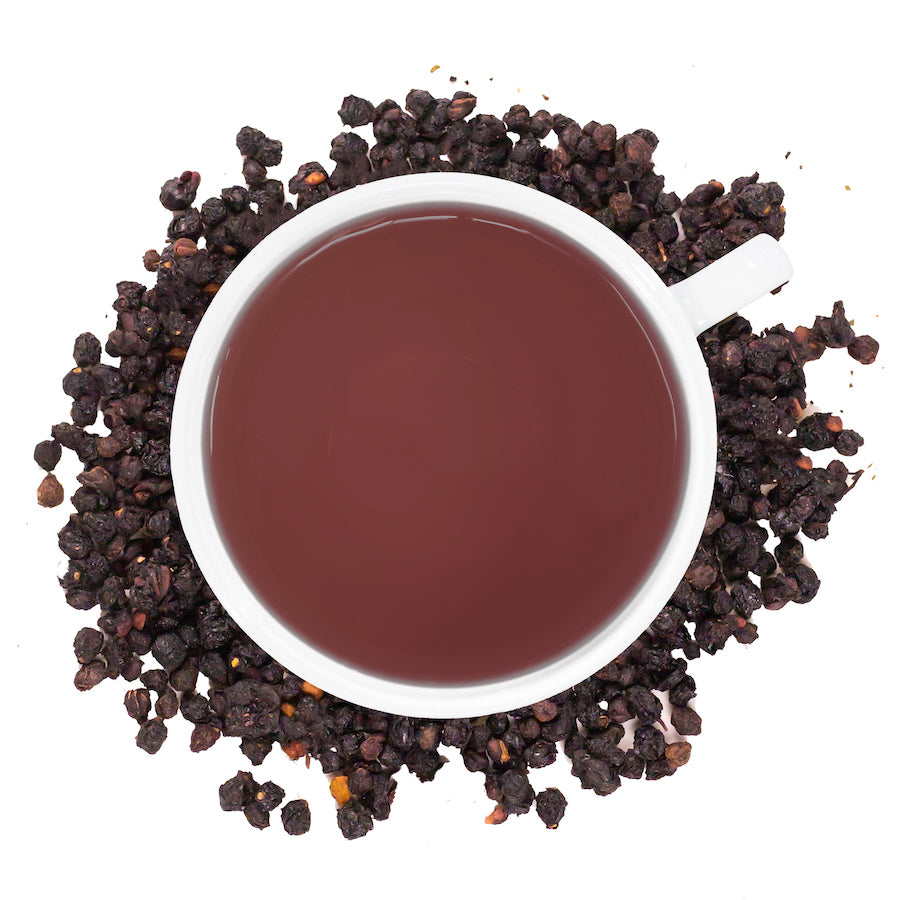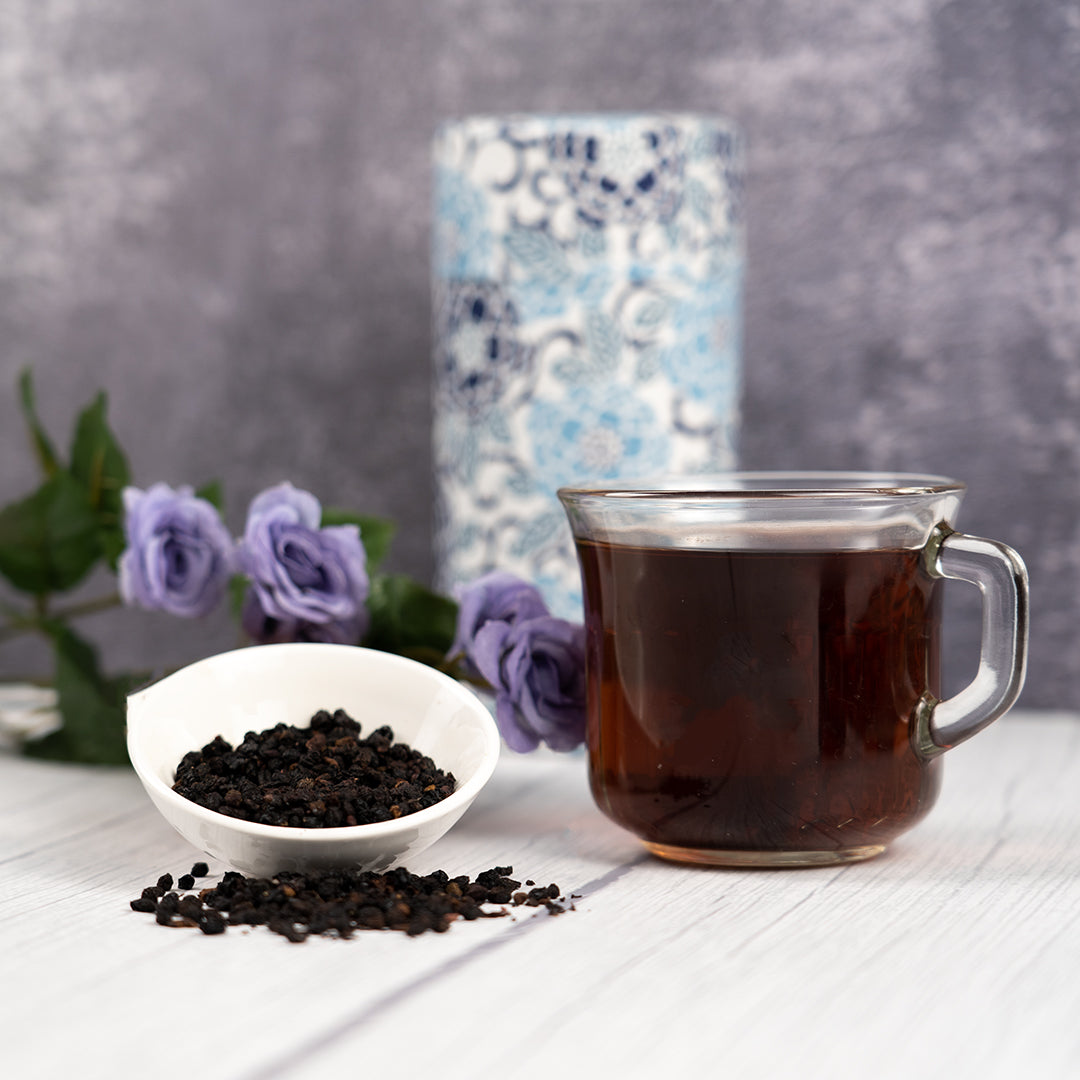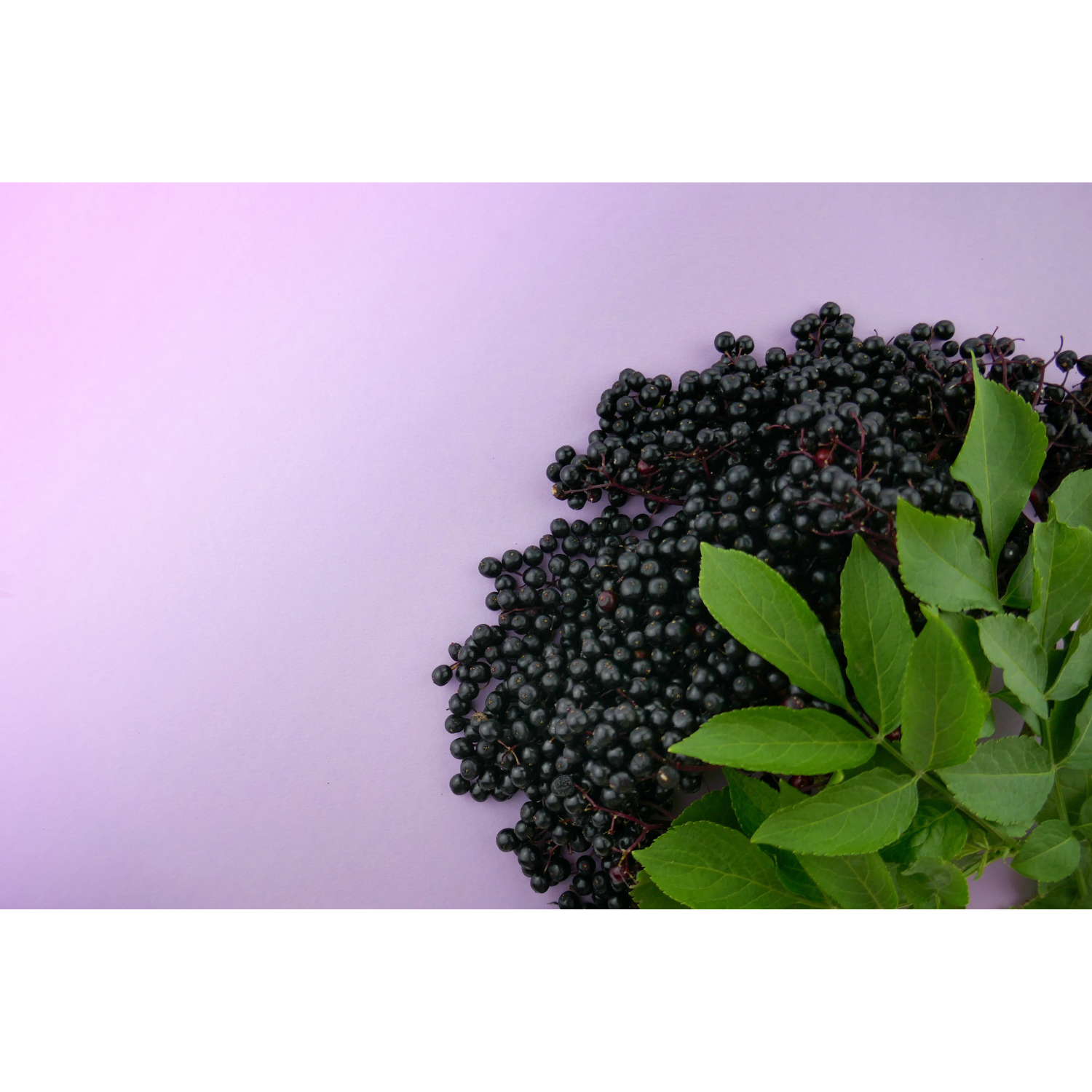Your Complete Guide To Elderberries
What are Elderberries?
Elderberries are the dark purple to blackish-blue fruit of the elder tree, scientifically known as Sambucus nigra or Sambucus canadensis. These small, round berries grow in clusters and are a popular choice in traditional medicine and culinary applications. Elderberries are renowned for their high levels of antioxidants and are often used to make elderberry syrup, tea, or supplements. They are believed to have immune-boosting properties and are used to alleviate symptoms of the common cold and flu. Additionally, elderberries have a sweet and tart flavor, making them a versatile ingredient in various dishes, such as jams, jellies, pies, and teas.
Shop Organic Elderberries →Elderberry Health Benefits
Immune System Support
Elderberries are rich in antioxidants, particularly anthocyanins, which can help support the immune system. These antioxidants may help combat free radicals and reduce oxidative stress, ultimately boosting the body's defense mechanisms against illnesses.
Cold and Flu Relief
Elderberry supplements or syrups are commonly used as natural remedies to alleviate symptoms of the common cold and flu. They may help reduce the duration and severity of these infections due to their potential antiviral properties.
Anti-Inflammatory Effects
Elderberries have anti-inflammatory properties that can assist in reducing inflammation in the body. This can be especially beneficial for conditions like arthritis or other inflammatory disorders.
Cardiovascular Health
Consuming elderberries may contribute to heart health. The antioxidants in elderberries can help improve blood vessel function, reduce blood pressure, and lower the risk of heart disease.
Skin Health
Elderberry extracts and oils are sometimes used in skincare products due to their potential benefits for the skin. They can help reduce the appearance of wrinkles and improve overall skin texture, in part because of their high antioxidant content.
History of Elderberries
The history of organic elderberries is deeply rooted in ancient herbal medicine and culinary traditions. Elderberries, scientifically known as Sambucus, have been used for centuries, with evidence of their consumption dating back to ancient Egypt. They have been employed in various cultures for their medicinal properties, believed to boost the immune system and provide relief from cold and flu symptoms.Organic farming practices, which prioritize natural and sustainable cultivation methods, have gained prominence in recent decades as a response to concerns about chemical pesticides and fertilizers. The cultivation of organic elderberries aligns with these principles, emphasizing the use of natural and environmentally friendly methods to grow this versatile fruit.Today, organic elderberries are widely recognized for their health benefits, and they are a staple in the wellness industry. They are used in a range of products, from elderberry syrup to herbal teas, making them a popular choice for those seeking natural remedies and organic options. The historical use of elderberries and their modern resurgence in organic farming practices underscore the enduring appeal of this fruit for both its taste and health benefits.
Elderberries Caffeine Content
Organic elderberries are naturally caffeine-free. They are valued for their antioxidant-rich properties and potential health benefits, making them an ideal caffeine-free option for those seeking a natural and caffeine-free dietary choice.
What does Elderberry Tea Taste like?
Elderberry tea is known for its distinctive and delightful flavor profile. It offers a sweet and slightly tart taste with fruity undertones, often described as reminiscent of blackberries or grapes. The flavor can be both rich and robust, making it a popular choice for those who enjoy a naturally sweet and fruity herbal tea. Elderberry tea is often consumed hot or cold and can be sweetened with honey or other natural sweeteners to enhance its flavor further. Its unique taste, combined with potential health benefits, makes elderberry tea a favorite among herbal tea enthusiasts.

Shop Organic Elderberry
You can find Elderberry tea on our website! We are USDA certified organic, and our products are vegan and free of GMO’s. Try our Organic Elderberry tea out!
Shop Organic Elderberry Tea →How to Steep Elderberry Tea
1. Boil fresh, filtered water and let it cool for a few minutes.
2. Add 1-2 teaspoons of Organic Elderberries to the infuser for every 8 ounces (240ml) of water.
3. Place the infuser or tea bag in a cup or mug and pour the hot water over the tea.
4. Let it steep for 5-7 minutes, depending on how strong you prefer your tea.
5. Remove the infuser and enjoy your cup of Organic Licorice Root tea!


